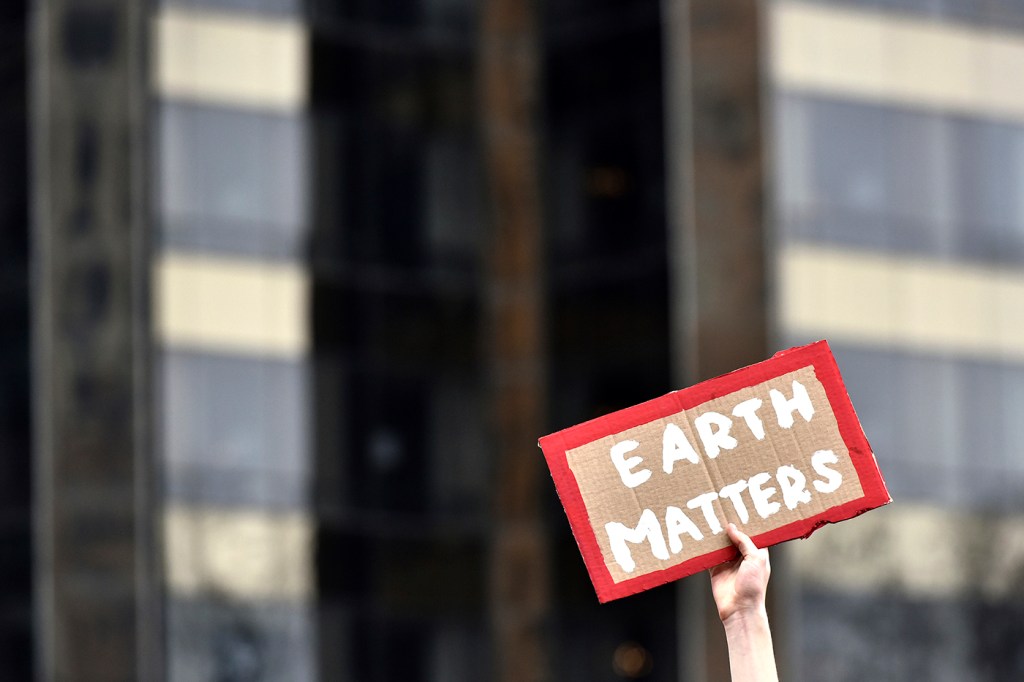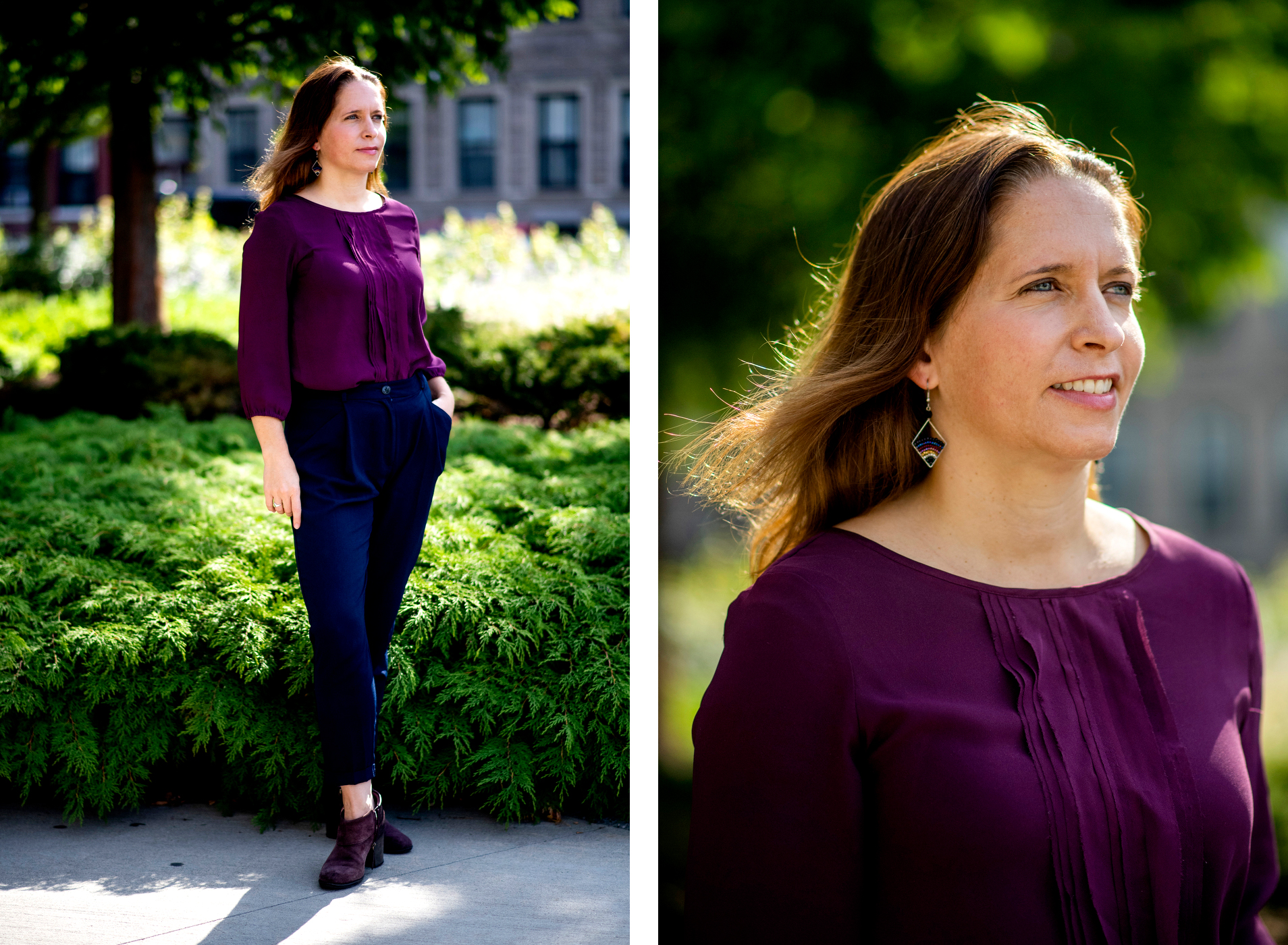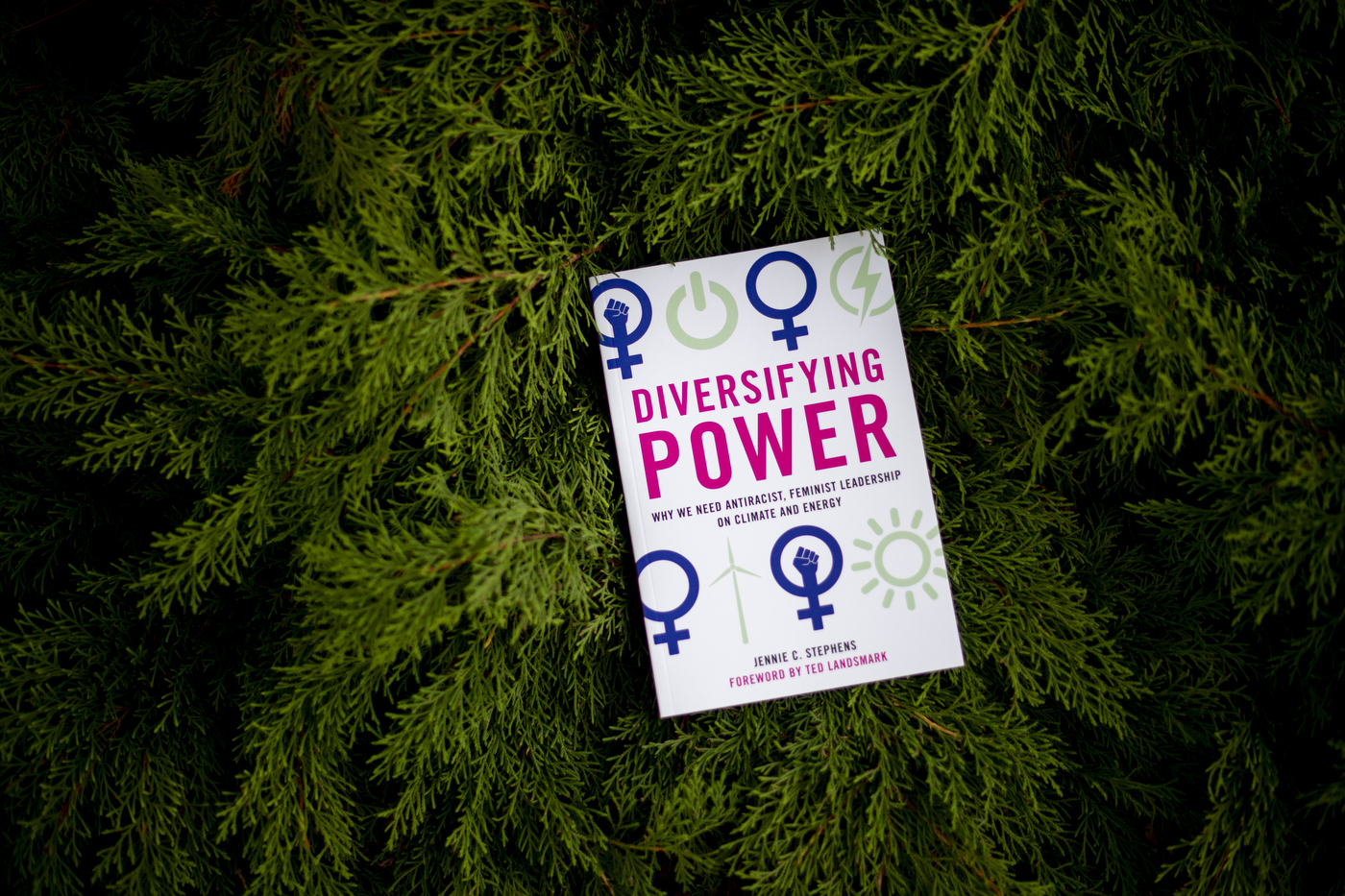Climate change has made history this election cycle. But how will it fare in November?

If the presidential debate planned for Thursday night had taken place as planned, it’s likely that climate change would have been a topic. The first debate featured the longest discussion of climate change of any United States presidential debate to date. But while the issue has gotten unprecedented attention this cycle, climate policy in the U.S. still has a long way to go, says Jennie C. Stephens, dean’s professor of sustainability science and policy at Northeastern.
For the most part, says Stephens, the government’s approach to climate science has been to engineer technological fixes to problems such as rising greenhouse gas emissions, wildfires, and drought—a kind of whack-a-mole where global health is at stake.
The first—and possibly only—presidential debate of the cycle highlighted this approach, says Stephens, who is also director of the School of Public Policy and Urban Affairs and director of strategic research collaborations in the Global Resilience Institute.

Moderator Chris Wallace asked Republican incumbent President Donald Trump whether he believed in climate science. Trump sidestepped the question, talking instead about his support for electric vehicles and his pledge to plant “a billion trees.” Wallace asked his Democratic challenger, Joe Biden, about his support for legislation known as the Green New Deal. Biden declined to support it and expanded instead upon his own climate plan.
The Democratic ticket—Biden and U.S. Sen. Kamala Harris—has focused its climate platform on the creation of green jobs and boosting the economy. The Republican ticket—incumbents Trump and Mike Pence—doesn’t include a climate platform on its website.
“Given the many opportunities for connecting the climate crisis with public investments in jobs, health, housing and transportation, the debate was disappointing in that it failed to acknowledge how climate links to racial justice, economic justice and social justice,” Stephens says.
The topic of climate also came up during the vice presidential debate on Oct. 7. Candidates Harris and Pence briefly debated the Green New Deal, but seemed to get stuck on one issue in particular: fracking. Harris ardently denied claims by Pence that a President Biden would ban fracking—a process by which oil and gas are extracted from fissures in subterranean rocks—and, like her running mate, emphasized the potential for job growth with a climate plan.
What the country—and the world—needs instead, Stephens says, is a holistic approach to climate change that includes diverse viewpoints. She calls for that new kind of climate leadership in a recently-published book called Diversifying Power: Why We Need Antiracist, Feminist Leadership on Climate and Energy.

What we need is a new kind of climate leadership, says Stephens, whose new book, ‘Diversifying Power: Why We Need Antiracist, Feminist Leadership on Climate and Energy,’ was published last month. Photo by Matthew Modoono/Northeastern University
“There are already so many innovative and inspiring leaders around the world,” Stephens says. Among them, she lists Jacqueline Patterson, director of the NAACP Environmental and Climate Justice Program; as well as U.S. Reps Ilhan Omar of Minnesota, Alexandria Ocasio-Cortez of New York, Rashida Tlaib of Michigan and Ayanna Pressley of Massachusetts—a group of junior Democratic congresswomen collectively known as “the squad.”
“All these leaders are unique in that they’re connecting climate and energy with other basic issues such as jobs, economic justice, health and access to healthcare, housing; things that we don’t normally think of as ‘climate issues,’” Stephens says. “That kind of climate leadership is what we need a lot more of.”
Indeed, a recent report by the United Nations projects an increase of “climate-related risks to health, livelihoods, food security, water supply, human security, and economic growth” over the next decade if left unmitigated.
And with a pandemic bearing down on the country, the related economic crisis, and an election that will chart the course for at least the next four years, Stephens says the U.S. is in a “disruptive moment.”
“So many things are up in the air,” she says, “and we really have a stark choice in front of us in terms of national leadership. It’s not just what each person will or won’t do; but the potential for long-term, transformational change.”
For media inquiries, please contact media@northeastern.edu.





